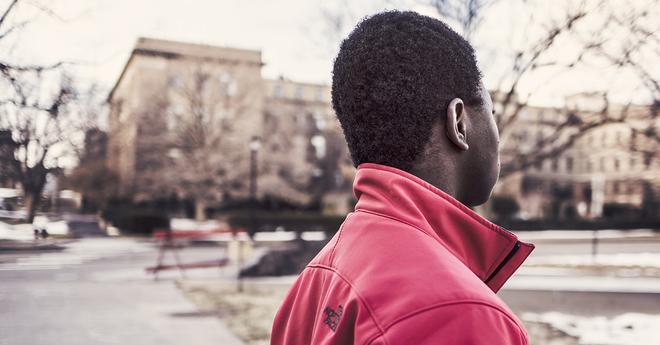Capitalizing on a “captive audience”: How tobacco companies targeted troops on military bases
“Captive audience” is a phrase found in many tobacco company planning documents about marketing to military service members. That’s because companies sought to capitalize on, as one company put it: “the self-imposed confinement of the military family to on-base activities.”

Tobacco companies took advantage of this “captive audience” with special events and activities on and near military bases to grow cigarette sales and promote their brands. The tobacco industry organized these events for years, contributing to a pro-tobacco culture, smoking initiation (38 percent of military smokers started after enlisting) and overall higher smoking rates than the general population.
A 2009 study examined internal tobacco industry documents in the Truth Tobacco Industry Documents archive and found that tobacco companies sponsored more than 1,450 events for military personnel between 1981 and 2000.
Below are three examples of the types of events that tobacco companies held, just one of the ways the tobacco industry has exploited military service members.
Fairs and Festivals
In 1983, Lorillard launched a concept that the company called “face-to-face military promotions,” which included events held at military bases across the country. For example, at a fair at Fort Bragg, a military base in North Carolina, Lorillard promoted its brand and products at a Newport outpost that was set up right next to the only entrance and exit, so that the nearly 20,000 fair-goers “could not miss the Newport stage.” At the stage, and throughout the event, Newport handed out samples of cigarettes.

Around the same time, Lorillard sponsored a promotional event called “Summerfest” at a San Diego beach near a Navy exchange. At the event, Lorillard gave mass samples of Newport products to attendees on the beach, where young Marines wore t-shirts and baseball caps with the “Alive with pleasure” Newport slogan. Newport displays offering $1 discounts were placed in the surrounding exchanges, and according to Lorillard, 98 percent of the discounted Newport cigarette cartons sold out in two weeks or less.
Ladies and Leisure
From 1990 to 1991, R.J. Reynolds introduced “Joe’s Squad”: a group of women who appeared with Joe Camel (the brand’s former mascot) at promotional events. The entertainment program was part of the company’s “MILITARY YAS INITIATIVE,” a marketing strategy targeted toward young adult servicemen.
Joe’s Squad came exclusively to places frequented by young adult servicemen, such as local clubs, bars and restaurants around bases. At these events, the squad performed popular music and led activities like dance contests, arm wrestling and dating games—all while distributing free product samples.
At other times, Joe’s Squad made appearances on or near bases to sign autographs, take pictures with military personnel and give away cigarettes. One promotion gave smokers the opportunity to take a picture with Joe’s Squad if they purchased two packs of Camel or Salem cigarettes.
According to R.J. Reynolds, Joe’s Squad was created to give smokers “the opportunity to converse and partake in entertaining activities” with beautiful women and create an “exciting atmosphere and visibility, while positively reinforcing the imagery of the Camel brand.”

Apparel and Auto Races
In the early 1990s, Philip Morris started Marlboro Grand Prix promotions at military bases in multiple states to capitalize on the excitement around auto racing. With these promotions, Marlboro aimed toincrease visibility of the brand, build loyalty and reward Marlboro smokers.
In 1990 and 1991, for example, the brand offered a free “Marlboro Racing Team” t-shirt with a three-pack cigarette purchase, and sold Marlboro racing caps. Later promotions included Marlboro bar nights and product sales at base stores.
At the 1994 Grand Prix in Long Beach, Calif., Marlboro bar nights on bases featured live music bands and free food, and offered reduced admission fees. Philip Morris even distributed Marlboro cigarette cartons wrapped with Grand Prix tickets at parking lot sales. To help with promotion support, Philip Morris paid $1,000 to each base and donated over 2,000 Grand Prix tickets and branded items.



